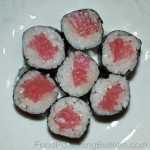A bakery supplier to Whole Foods, Kroger, Sam's Club, Sysco, Rich Products, and US Foodservice has been falsifying tests for Listeria and E. coli documents for more than a year, according to a lawsuit filed by whisteblowing employees. Orange Bakery Inc. of Irvine, California had previously employed a third-party lab, Silliker Inc., to test for bacteria. Before severing ties with the lab some time before January 1, 2015, Orange obtained blank testing forms which it then forged to show negative results for Listeria and E. coli, the lawsuit alleges. Orange sells raw dough for bakery products to clients who cover every part of the country. In addition to the major retailers and club stores including Whole Foods, the Kroger family of stores and Sam's Club, Orange also supplies dough to … [Read more...]
Lawsuit: Bakery Supplier to Whole Foods, Kroger, Sam’s Club, Sysco and More Faked E. coli, Listeria Tests
CA State Senator Drafts Bill To Curb Seafood Fraud
Citing reports of widespread seafood mislabeling,California State Senator Alex Padilla has drafted a bill aimed at curbing seafood fraud and improving consumer choice. SB 1138, which would make it illegal to knowingly sell mislabeled seafood, is scheduled to be heard by the Senate Health Committee this afternoon. In a press conference announcing the bill, Padilla cited a recent Oceana survey that revealed Southern California leads the nation in mislabeled fish. The survey found fish mislabeled in: 84 percent of sushi samples in Southern California; 58 percent of restaurants in Northern California; 52 percent of all fish in Los Angeles and Orange Counties; 27 percent of grocery stores visited in Northern California. Seafood mislabeling puts consumers at risk when they think they are … [Read more...]
EU to Begin 2nd Round of Horse Meat
One year after the European horse meat scandal began, the European Union has recommended a second round of testing on beef sold in the United Kingdom. The horse meat scandal began in January 2013 when health officials in Ireland discovered horse and pig DNA in products that were supposed to contain only beef. During 2013, thousands of products throughout the European Union were tested to determine the breadth of the problem. About 4.6 percent of samples tested contained horse meat. Those that contained more than 1 percent horse meat were analyzed for phenylbutazone (bute), an anti-inflammatory drug commonly used in horses that poses a health risk to humans. No public health issues were associated with the meat in question, but there was an outpouring of consumer concern. These … [Read more...]







